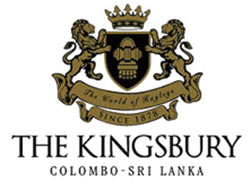ETCA: Legal framework will allay fears of Indian takeover
 The Sri Lankan government will not rush blindly into an agreement with India and present the proposed Economic and Technology Cooperation Agreement (ETCA) as a fait accompli paving the way for Indian control over local industries was the reassuring pledge given to worried professionals by a senior minister this week. Dr. Harsha De Silva, Deputy Minister of Foreign Affairs, placated the large gathering of professionals at this month’s Sunday Times Business Club discussion (on Tuesday) in Colombo who were up in arms over fears that the proposed ETCA between India and Sri Lanka would lead to loss of jobs within the local sectors among other concerns.
The Sri Lankan government will not rush blindly into an agreement with India and present the proposed Economic and Technology Cooperation Agreement (ETCA) as a fait accompli paving the way for Indian control over local industries was the reassuring pledge given to worried professionals by a senior minister this week. Dr. Harsha De Silva, Deputy Minister of Foreign Affairs, placated the large gathering of professionals at this month’s Sunday Times Business Club discussion (on Tuesday) in Colombo who were up in arms over fears that the proposed ETCA between India and Sri Lanka would lead to loss of jobs within the local sectors among other concerns.
The meeting was held at the Kingsbury Colombo, the host hotel. “We are not going to bulldoze an agreement through,” promised Dr. De Silva. “We will find a solution which is acceptable to all and we will work together with all parties to come up with a legal regulatory framework.”
Gamini Nanda Gunawardana, representing the United Professionals Movement (UMP) and a panelist at the lively discussion, had succinctly expressed fears that ETCA would open the floodgates to cheap and unskilled labour as well as those from professional categories from India.
“Sri Lanka must not run into decisions in her enthusiasm to conclude an agreement for mere political patronage and prestige,” warned Mr. Gunawardana who is also the managing director of SAGA Resource Developments Consultant Ltd.
 Mr. Gunawardana, an engineer by profession, took the government to task for “not having a long-term vision for national development” and said an agreement would benefit giant partner India. “Sri Lanka produces 2,000 engineers every year while India brings out 1.5 million. What will happen if we open up our sectors to India? What will happen to our children,” asked Mr. Gunawardana. The articulate Minister said safeguards would be put in place to ensure that local talent would continue to have jobs and brushed aside fears that any number of professionals could come from India once the agreement is in place. “That is not true. Just look at Singapore as an example. They have a similar agreement with India which allows people from 127 professions entry into Singapore, everyone from a gynaecologist to a psychologist.
Mr. Gunawardana, an engineer by profession, took the government to task for “not having a long-term vision for national development” and said an agreement would benefit giant partner India. “Sri Lanka produces 2,000 engineers every year while India brings out 1.5 million. What will happen if we open up our sectors to India? What will happen to our children,” asked Mr. Gunawardana. The articulate Minister said safeguards would be put in place to ensure that local talent would continue to have jobs and brushed aside fears that any number of professionals could come from India once the agreement is in place. “That is not true. Just look at Singapore as an example. They have a similar agreement with India which allows people from 127 professions entry into Singapore, everyone from a gynaecologist to a psychologist.
But this does not mean any number of Indians can go across because there are limits and regulations.” “Let us not get overly paranoid. We can always control the inflow and will ensure that a regulatory framework exists,” Dr. De Silva guaranteed. “I know we are working with everyone concerned to find a viable solution.” A political strategy should also be in place on how to handle India, warned Asoka Abeygunawardana, chairman and CEO of the Strategic Enterprise Management Agency (SEMA), who was the third panelist in the discussion moderated by Business Times Editor Feizal Samath. “While we need to be careful on the long-term impact of the flow of cheap labour from India, we must have a special policy for India, not only for trade but politically,” cautioned Mr. Abeygunawardana.
“The Indian bureaucracy will also look after its own interests but I doubt our bureaucrats are ready. This agreement is being pushed by India. We have not done our homework,” he added, expressing a middle-of-the road and a moderate view on the ECTA debate. His moderate views coming from the head of a government agency reflects the government openness in allowing free debate and open engagement amongst state sector officials – as long as rules are not broken. Dr. De Silva revealed a national plan for trade was in the process of being set up, and while agreeing that more work had to be done on fine-tuning the ETCA, he said it was imperative that Sri Lanka make the most of its geographical position on the world map.
“Our local market is too small and we need to leverage our GPS. We need to lure investment from Europe and other countries to set up businesses in our country and use our position as an entry point into India.” “India is important simply because of the size of its market. If a small country like ours is to benefit from trade it must become a hub for this region. We have to leverage, and be smart.” The Deputy Minister while admitting that politics, lobbies and self-interest groups would always play a role in trade between two countries, the bigger picture of trading should not be lost. “In Britain, they are now talking of exiting the European Union. Why? It is because of immigration issues. Anyway Britain was never a true partner in the EU as it always held on to its own currency instead of the Euro.
In the United States, some guy called Trump wants to build a wall so that rapists don’t come into the US from Mexico. What the US is really worried about is they don’t want jobs to go to Mexico.” Replying to critics of the existing Free Trade Agreement, set up in 1998, between India and Sri Lanka where the balance of trade is heavily in favour of India, Dr. De Silva said Sri Lanka should learn a lesson and draw inspiration from Singapore which has huge exports despite having no raw materials of its own. “Take for instance oil. Singapore is the biggest oil exporter in this part of the world. They don’t have oil but they have two refineries. They import oil, add value to it and export it. There is no future for Sri Lanka without trade,” Dr. De Silva predicted.
Mr. Gunawardana, in his earlier remarks, also stressed that it was a misconception that the UPM was set up to oppose the ECTA. “We want to engage the government (on all development issues) as professionals. We are interested in the country’s development and want to work with the government, any government. But the government must take us into their confidence,” he said, looking at the Deputy Minister and adding “We want to work with you, support us in this initiative.”


